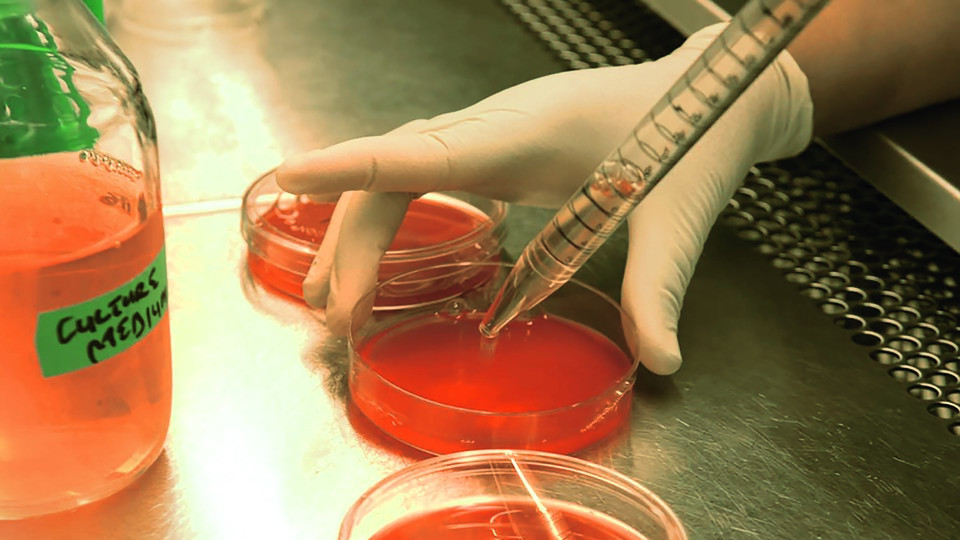Unit | Malaria Gene Regulation
The Malaria Gene Regulation Unit aims to understand the molecular basis of two of the most important survival strategies of malaria blood-stage parasites - antigenic variation and gametocyte formation. Antigenic variation allows the parasites to evade the human immune response and establish a chronic blood infection. Gametocyte formation ensures the transmission of malaria from one human host to the next via the mosquito vector.
Our Research Focus: Epigenetics of Antigenic Variation and Sexual Commitment
Antigenic variation and sexual commitment are absolutely essential for parasite survival. While antigenic variation secures the long-term survival of the parasite population in the bloodstream, sexual commitment provides a continuous source of gametocytes, ultimately facilitating human-to-human transmission of malaria. Interestingly, these seemingly unrelated processes are controlled by a similar logic in the regulation of gene expression.
Both antigenic variation and sexual commitment are based on clonally variant gene expression, and both processes are epigenetically controlled by heterochromatin protein 1 (HP1), an evolutionarily conserved silencing factor. In P. falciparum, HP1 silences hundreds of genes encoding variable surface antigens, including all members of the var/PfEMP1 family. Stochastic activation and switches in their expression are responsible for antigenic variation and immune evasion. Apart from antigenic variation genes, HP1 also silences the locus encoding AP2-G, a master transcription factor (TF) essential for sexual commitment and gametocyte differentiation. It appears that HP1-dependent silencing of ap2-g keeps parasites in asexual proliferation mode, whereas targeted activation of ap2-g triggers sexual conversion, cell cycle exit and gametocyte differentiation.
Our research seeks to dissect and understand the molecular players and pathways that regulate these vital processes.

Till Voss
Associate Professor for Molecular Parasitology, PhD
Head of Unit
+41612848161
till.voss@swisstph.ch
Key Projects
Exploring Early Sexual Differentiation in the Malaria Parasite
The SNSF-funded research project focuses on gametocytes, the transmissible forms of the malaria parasite Plasmodium falciparum. The team, together with external collaborators, will apply CRISPR/Cas9 gene editing, super-resolution microscopy techniques and various –omics approaches to study the early phase of gametocyte differentiation and the mechanisms underlying gametocyte sex determination. With this project, the researchers aim to generate novel insight into the molecular and cellular events driving gametocytogenesis, offering potential avenues for the development of urgently needed new interventions for malaria elimination. Read more
Function of Heterochromatin Protein 1
We aim to deliver a detailed understanding of HP1 function in malaria parasites by conducting functional complementation assays and by identifying and characterising interacting partners and post-translational modifications of HP1.
Gametocyte Conversion and Differentiation
In this project, we try to understand the molecular pathways and epigenetic control mechanisms congregating at the ap2-g locus to control the switch from asexual proliferation to sexual commitment and early differentiation of P. falciparum gametocytes.
Antigenic Variation
We investigate several regulatory proteins and DNA elements potentially implicated in the silencing and clonally variant expression of the var/PfEMP1 family. We hope such knowledge will help us to understand how P. falciparum controls antigenic variation, i.e. how it manages to express only a single var gene at a time and to switch expression between var gene loci.
Partners & Collaborators
- Paul Jenoe, Proteomics Core Facility, Biozentrum, University of Basel
- Richard Bartfai, Integrative Parasitology Group, Radboud University
- Christian Doerig, Microbiology, Monash Univeristy
- Moritz Treeck, Francis Crick Institute
- Zbynek Bozdech, School of Biological Sciences, Nanyang Technological University
- Peter Preiser, School of Biological Sciences, Nanyang Technological University
- Matthias Marti, School of Infection & Immunity, University of Glasgow
Latest Publications
Freville A et al. Expression of the MSPDBL2 antigen in a discrete subset of Plasmodium falciparum schizonts is regulated by GDV1 but may not be linked to sexual commitment. mBio. 2024;15(5):e0314023. DOI: 10.1128/mbio.03140-23
Mack A, Rajkumar S, Kofler J, Wyss K. Estimating the burden of disease attributable to non-assisted suicide in Switzerland from 2009 to 2021: a secondary data analysis. Swiss Med Wkly. 2024;154(11):3522. DOI: 10.57187/s.3522
Voss T.S, Brancucci N.M. Regulation of sexual commitment in malaria parasites: a complex affair. Curr Opin Microbiol. 2024;79:102469. DOI: 10.1016/j.mib.2024.102469
Wyss M, Kanyal A, Niederwieser I, Bartfai R, Voss T.S. The Plasmodium falciparum histone methyltransferase PfSET10 is dispensable for the regulation of antigenic variation and gene expression in blood-stage parasites. mSphere. 2024;9(11):e0054624. DOI: 10.1128/msphere.00546-24
Wyss M, Thommen B.T, Kofler J, Carrington E, Brancucci N.M.B, Voss T.S. The three Plasmodium falciparum Aurora-related kinases display distinct temporal and spatial associations with mitotic structures in asexual blood stage parasites and gametocytes. mSphere. 2024;9(9):e0046524. DOI: 10.1128/msphere.00465-24
Wyss M. From antigenic variation to cell cycle progression: a functional analysis of the putative var gene regulator PfSET10 and its interaction partners in Plasmodium falciparum. Basel: Univ. Basel, 2024. Doctoral Thesis, University of Basel, Faculty of Science DOI: 10.5451/unibas-ep96829

 Daniel Ballmer
Daniel Ballmer
 Patricia Landeau Millan
Patricia Landeau Millan
 Igor Niederwieser
Igor Niederwieser
 Till Voss
Till Voss
 Matthias Wyss
Matthias Wyss